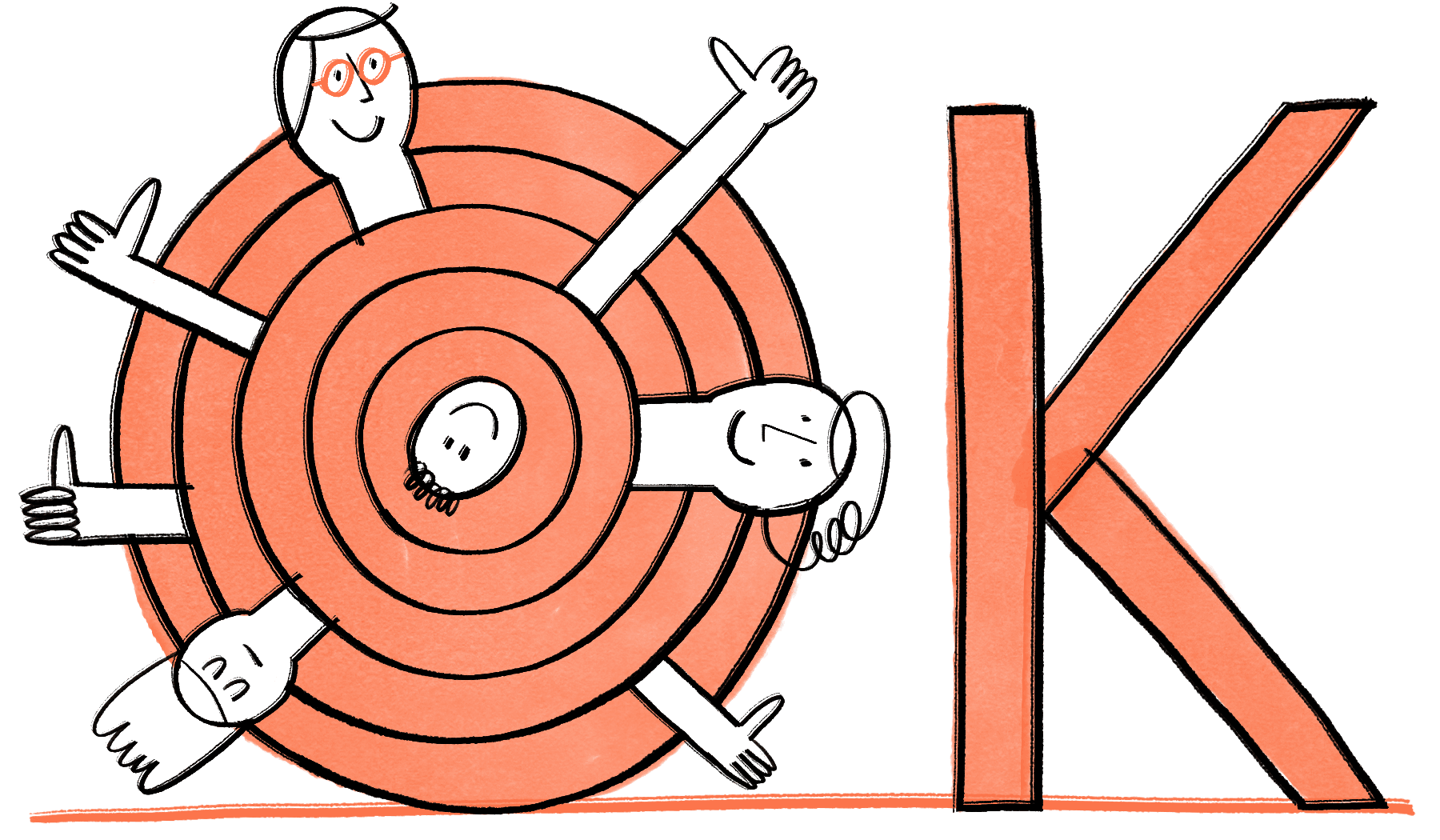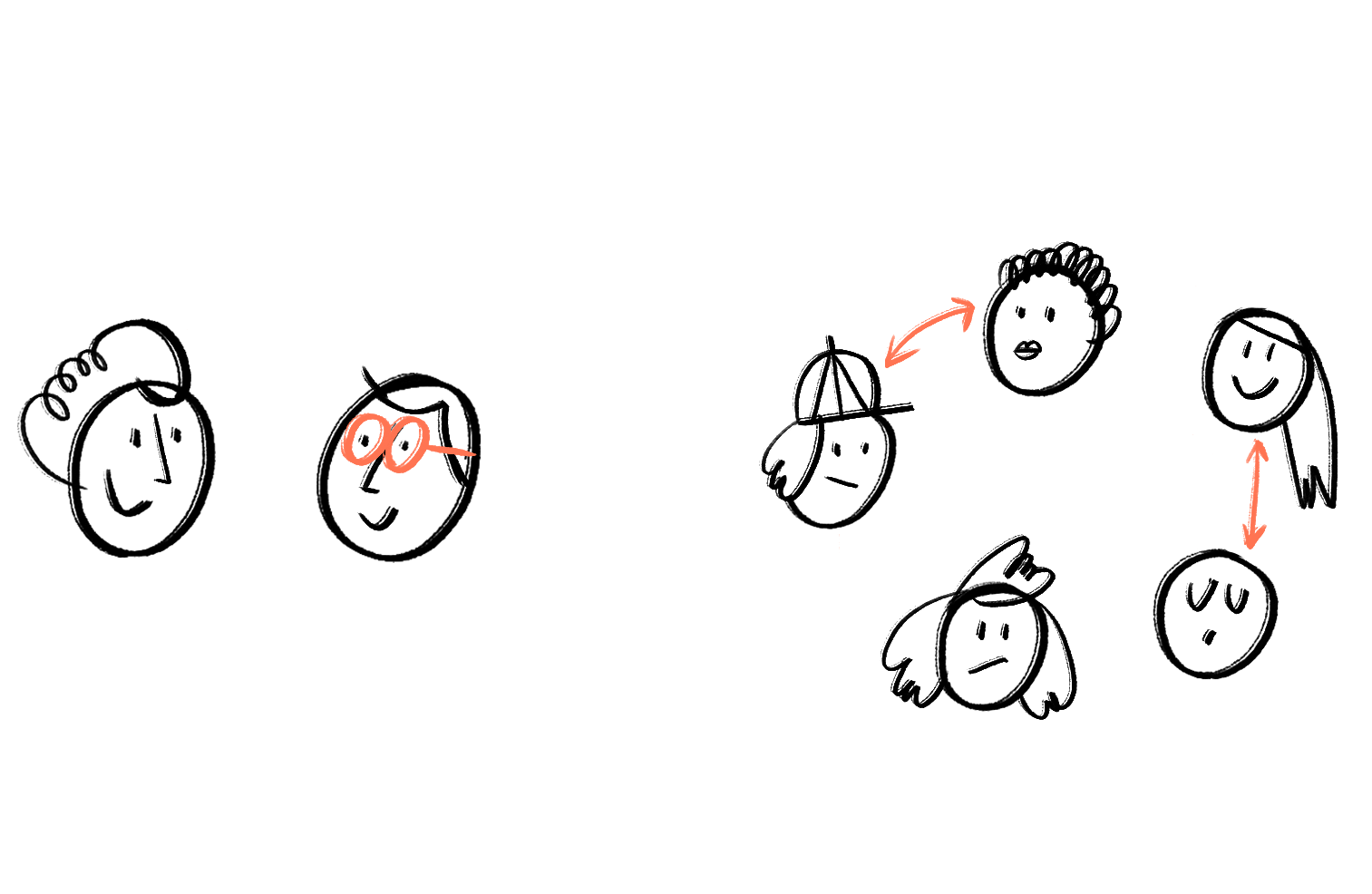

It all starts with you yourself. For this reason, remember to reflect regularly for yourself and perceive your own needs as well.
Take time to let a sense of calm manifest, since this will also carry over to your students too.

Giving and receiving feedback: we make efforts to establish feedback as a culture for all involved, but also as relates to our own perception. We understand this feedback culture as a circular system, since the actions of every individual always have an effect on the process as a whole too.Feedback requires a safe and defined framework as well as meaningful criteria. By no means is it always about making value judgements. Especially non-judgemental impulses can help to deepen awareness.
In this spirit, feedback is a recursive process that triggers awareness and enables experience.

Click on the circles to discover the three levels of feedback culture.
Felix is running around the room. Leonie and Olga don’t feel like working on stuff with their partners. Oliver is crying and Ahmed and Servet are arguing. The stereo doesn’t seem to be working properly, Mira doesn’t know what she should do now, and Kian and Alina can’t wait another second to show you the duet they came up with. Not everything goes according to plan in a school setting. But you can always stop for a moment of silence and reflect.
Duygu dances independently and in an interesting way, though without really paying attention to the music. Karl practices his martial arts movements so enthusiastically that he loses his balance. Adem always moves way more slowly than everybody else. What impulses can you provide to help the children make progress without sounding like you are making value judgements?
You have various options for creating a framework for feedback.